Crafting with Passion: Important Tips for Woodworking Enthusiasts
If you’re a woodworking enthusiast, you know that crafting with wood is more than just a hobby – it’s a passion. The smell of freshly cut timber, the satisfying feeling of shaping it with your hands, and the joy of seeing your creations come to life are all part of this rewarding skill.
Whether you’re a seasoned pro or just starting on your woodworking journey, this guide is here to provide you with valuable tips and insights that will fuel your passion and help you excel in your craft. So, get ready to explore the key techniques that will enhance your woodworking experience and elevate your projects to new heights.
Invest in Quality Tools
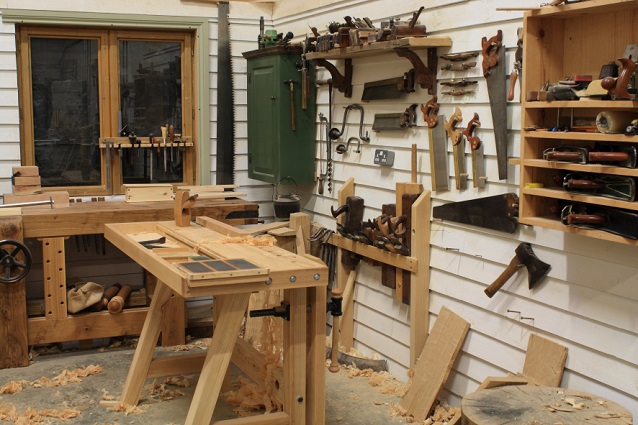
Investing in quality tools is crucial for woodworking due to the significant impact they have on both the craftsmanship of the finished product and the overall woodworking experience. High-quality woodcraft supplies ensure precision, accuracy, and efficiency, leading to well-crafted pieces with clean cuts, tight joints, and smooth finishes.
For example, if you are using a technique such as woodturning, you need to purchase quality woodturning supplies to create a well-made finished product. In woodturning, where the interaction between tools and rotating wood demands precision and control, using well-crafted gouges, chisels, and other equipment ensures smoother cuts and more refined shapes.
You can choose from a wide variety of woodturning supplies at affordable prices. By opting for high-quality tools, you can elevate your craft and achieve stunning turned pieces. Additionally, better tools tend to be more durable and reliable, reducing the likelihood of frequent replacements and saving both time and money in the long run. When considering which tools to invest in, factors such as the tool’s material, construction, brand reputation, and user reviews should be taken into account.
Quality tools are built to withstand the rigours of woodworking, ensuring they last longer and provide consistent performance. Also, the materials used in the tools’ construction impact their longevity and effectiveness. High-grade metals and sturdy handles contribute to a tool’s overall quality. Moreover, you should pay attention to tool specifics, ensuring they are designed for woodworking in general or woodturning and compatible with your equipment.
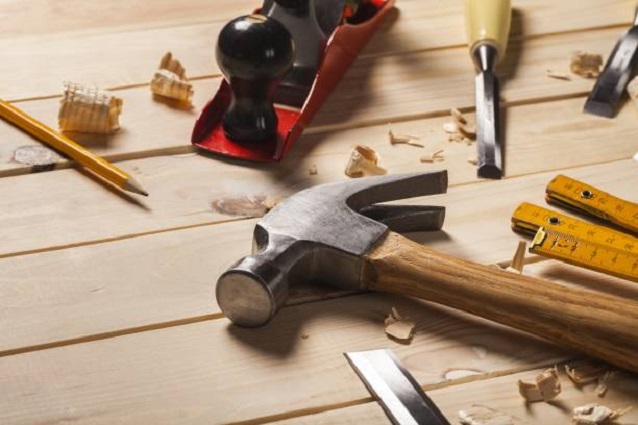
Comfort and safety are paramount – opt for ergonomically designed tools and invest in proper safety gear. While quality tools may require a higher upfront cost, their long-term benefits in terms of improved results, reduced frustration, and extended lifespan make them a worthwhile investment for any serious woodworker.
Prioritize Safety
When engaging in woodworking tasks, it’s crucial to take care of your safety above all else. Ensure that you wear the appropriate protective gear, including safety glasses, ear protection, and dust masks. Keep your workspace organized and free from any clutter that might pose a hazard. Also, regularly inspect and maintain your tools to prevent the risk of accidents.
Remember to always securely fasten workpieces, and opt for sharp tools to minimize potential dangers. In addition, make sure you are focused on the task at hand, practice proper techniques, and steer clear of distractions. We recommend you have a first aid kit on hand at all times and get familiar with emergency procedures. Prioritize education, seek guidance, and never compromise safety for the sake of convenience.
Learn the Basics
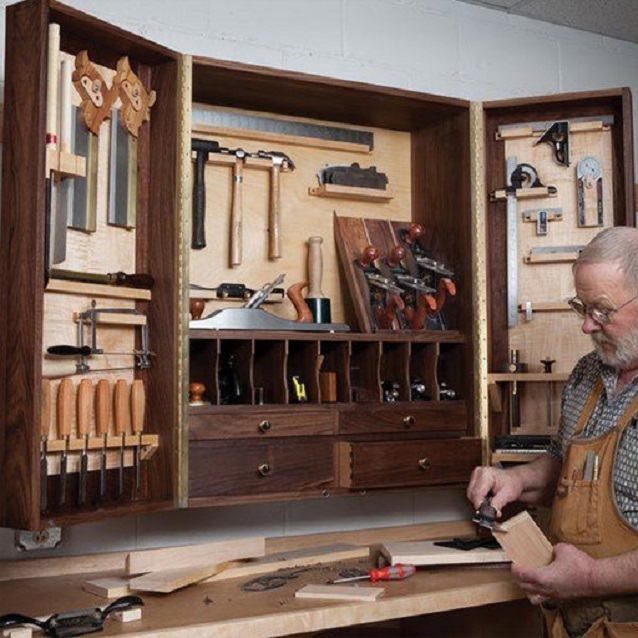
In woodworking, grasping the basics is extremely important. They’re the foundation that helps you comprehend how things function. When you’re familiar with these fundamentals, you can operate tools correctly, prep your materials, and craft intricate designs. Think of it as a sturdy base for tackling more complex tasks down the line.
Mastering the basics enhances safety and empowers you to create impressive woodwork with self-assurance. It’s like laying the groundwork for a solid structure – by learning and applying the basics, you set yourself up for a rewarding and accomplished woodworking journey.
Plan and Measure Twice
By carefully planning your project and taking precise measurements before making any cuts or joining pieces, you significantly reduce the chances of errors and material wastage. This practice ensures that your design vision translates seamlessly into the final product, enhancing both its functionality and aesthetics.
Rushing into cutting or assembling without proper planning can lead to costly mistakes, requiring additional time and resources for corrections. Embracing this approach will allow you to execute your woodworking projects with accuracy and confidence.
Choose Suitable Wood
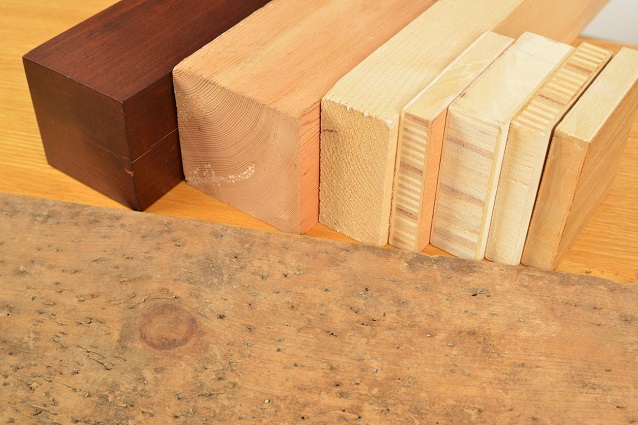
Your choice of wood directly impacts the outcome and durability of your project. Different woods have different colours, grains, and levels of hardness, which can affect the final appearance and durability of your work. That is why you should match the wood’s characteristics with the project’s requirements.
For instance, opt for hardwoods like oak or maple for furniture that needs to withstand heavy use. Consider researching the wood’s stability, workability, and finish receptivity to ensure a successful project. By selecting the right wood, you set yourself up for a satisfying woodworking process, ensuring that your creations stand the test of time.
Explore Finishing Techniques
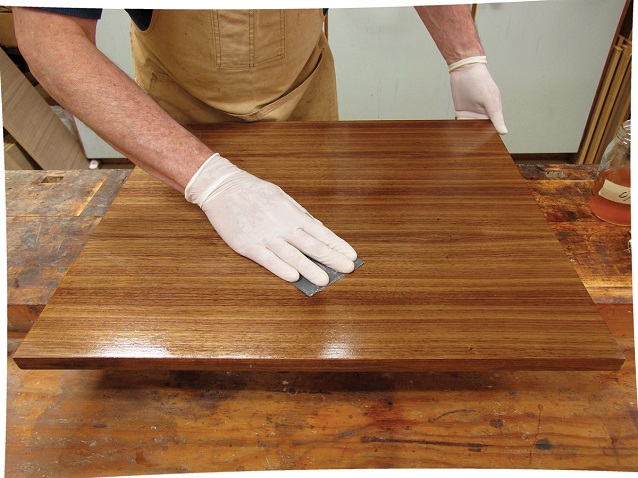
Trying out different techniques in woodworking brings valuable advantages. It helps you become more adaptable and skilled, allowing you to solve problems creatively. As you explore, you’ll learn more about how wood works and how to use tools effectively, making you a better craftsman. With that in mind, consider experimenting with diverse finishing techniques like staining, varnishing, and painting to elevate your projects’ aesthetics. Finishing not only enhances beauty but also safeguards wood from moisture and wear.
Does Woodworking Relieve Stress?
Woodworking can be a relaxing and stress-relieving activity for many people. It allows individuals to focus on a creative and hands-on task, which can help take their minds off of stressors and promote a sense of accomplishment. Working with wood, shaping it, and creating tangible objects can provide a meditative and calming experience. If you’re interested in trying woodworking as a stress-relief activity, consider starting with simple projects and gradually working your way up to more complex ones.
Final Words
Woodworking is a skill that develops over time. Remember to be patient with your progress and trust the process. As you gain experience, your abilities will naturally improve. Whether you’re making something practical or artistic, let your passion guide you. By following the important tips we’ve shared and using your tools and techniques well, you’ll see how your projects become a true reflection of your dedication and love for woodworking. So, take your time, enjoy the process, and treasure the rewarding journey of crafting with wood.



